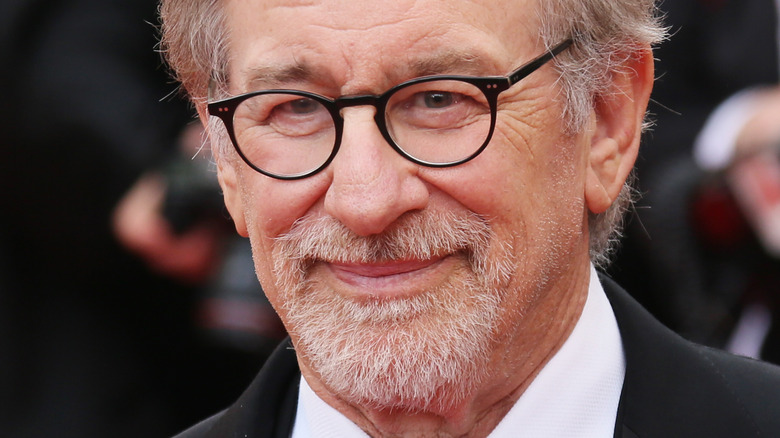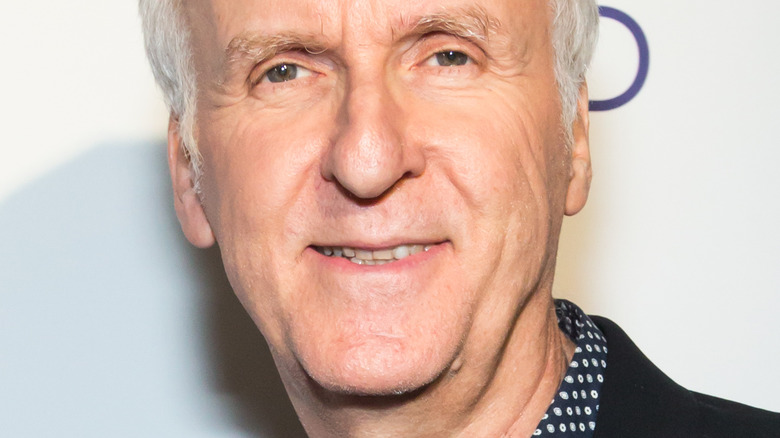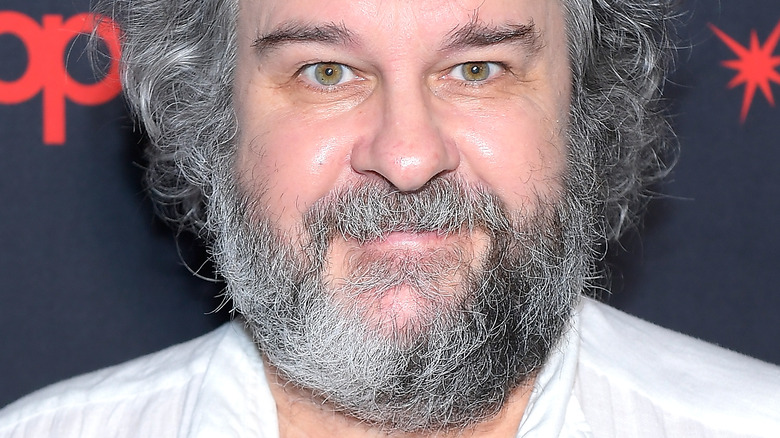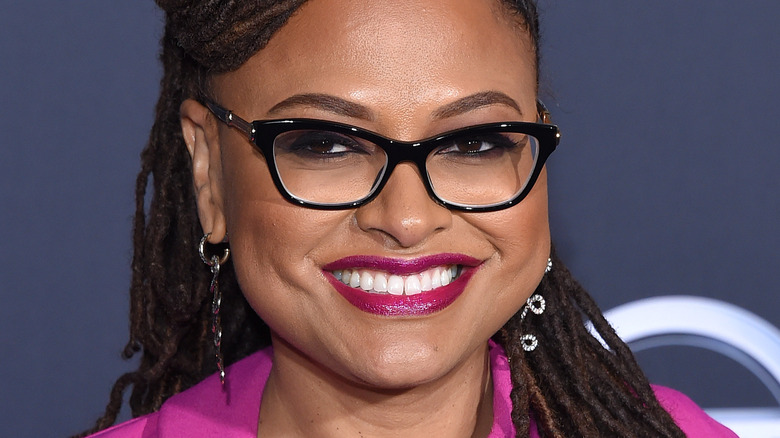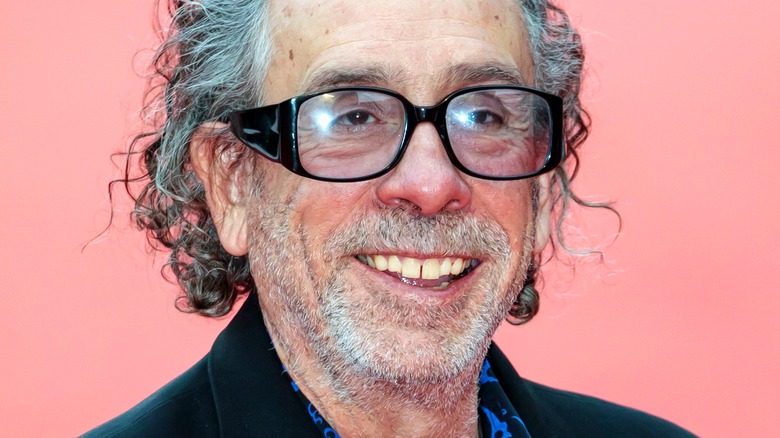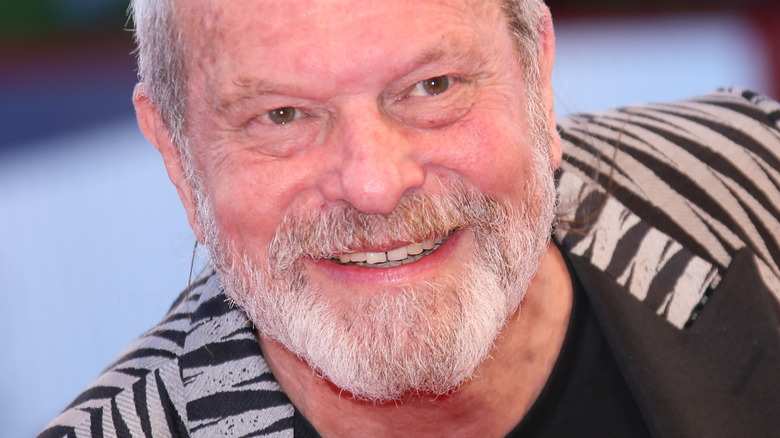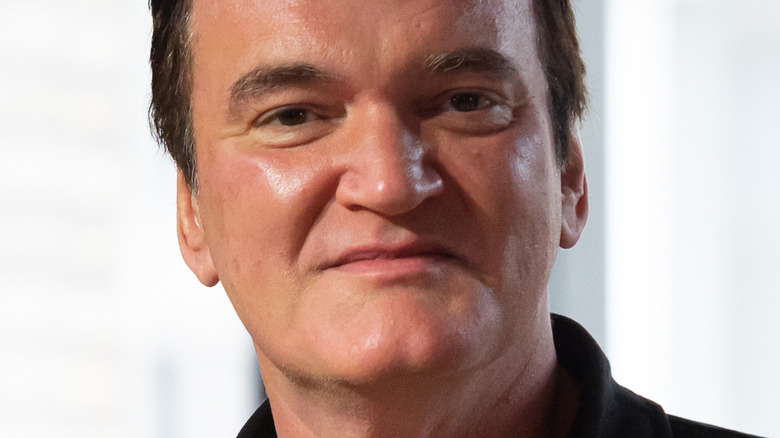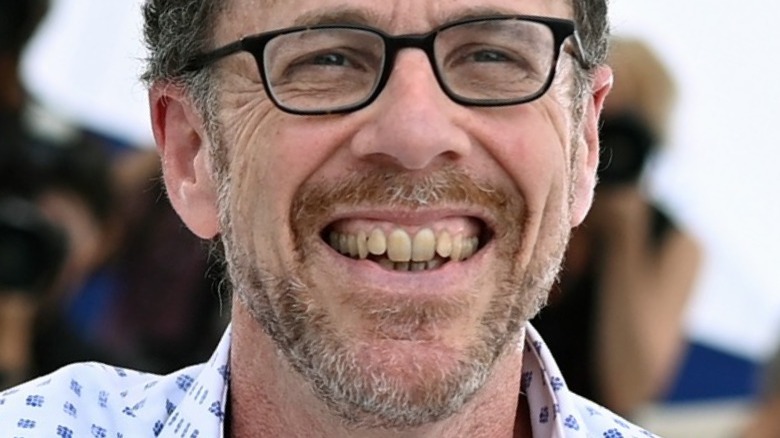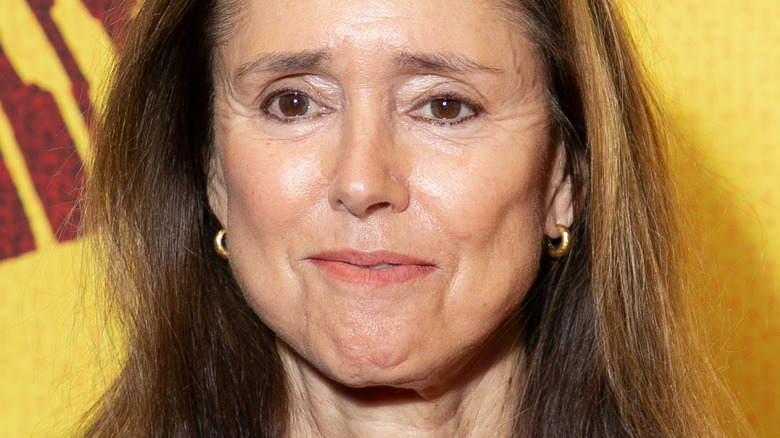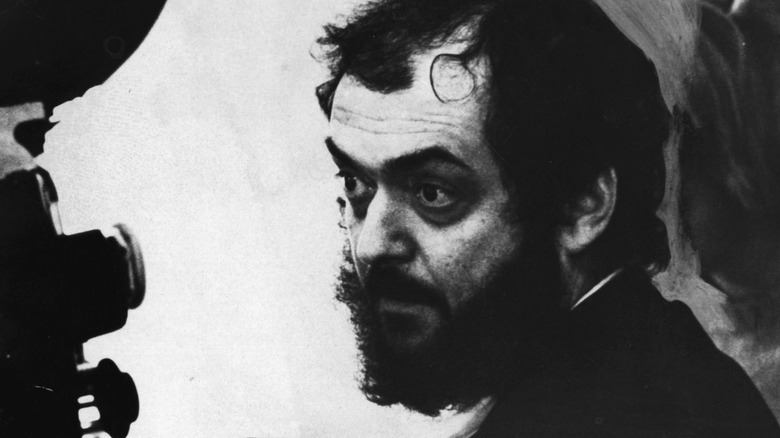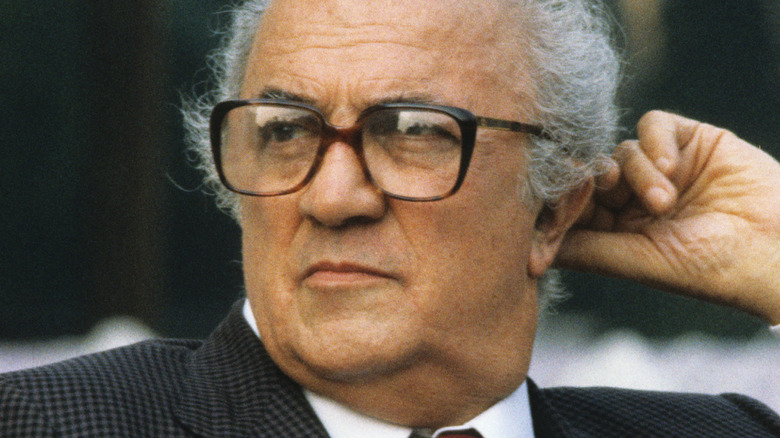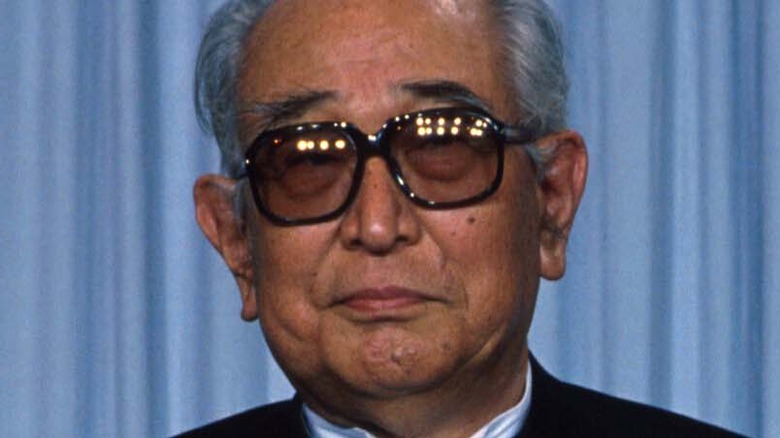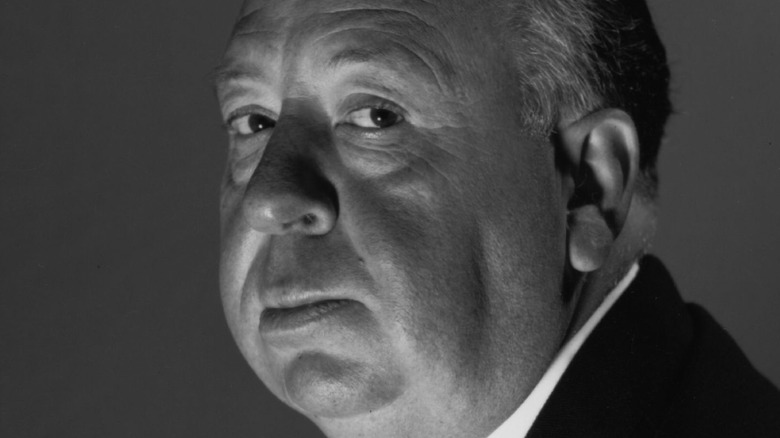Legendary Directors Who Didn't Go To Film School
There's a rule to starting any profession, and it's relatively simple: If you want to do something professionally, you have to go to school! People don't just start practicing medicine without going to medical school, and only a fool would argue a case in front of a judge without attending law school. Schools exist to train people to do something others can't, and those wanting to become directors have to go to film school.
At least, that's the norm — almost everyone working in the entertainment industry pursued a degree or certification that put them through the paces so they could work. Some of the greatest directors sat in classes all over the world, learning the ins and outs of feature filmmaking, but not all of them. Every once in a while, an incredibly talented person will forgo school and push their way into the industry, and believe it or not, some of the world's best directors fit this description.
Of course, there are some examples of people doing this before film school was a thing. Still, there are far more modern examples of movie directors of pure, raw talent who either quit film school and didn't finish or didn't go at all. The directors listed here are all legendary members of their craft, and none of them went to a university to learn how to make movies — they managed to stand out in the industry without any formal training.
Lana and Lilly Wachowski
Lilly and Lana Wachowski, collectively known as the Wachowskis, are two of the most prominent directors working in Hollywood today. They made their mark on the industry in 1999 with the release of "The Matrix," which the sisters wrote and directed. "The Matrix" was a revolutionary film and stands as one of the most iconic movies of the 1990s, as it influenced a plethora of subsequent films, creatively and technically.
The Wachowskis followed a circuitous and nontraditional path to becoming Hollywood A-listers, having started in comics. Instead of going to film school, Lana attended Bard College, while Lilly went to Emerson, but both women dropped out before graduating. (Lilly, at least, attended a film course at school.) They worked in construction for a bit, and in 1993, they used their collective creativity to write for Marvel Comics' imprint, Razorline's Barkerverse (per Wired). They continued to work in comics and wrote "The Matrix" for that medium before transitioning the story to the silver screen.
Before that happened, they went to Warner Bros., having written the script to an action-thriller, "Assassins" (per Buzzfeed). The film got a page-one rewrite and failed to turn much of a profit, forcing the Wachowskis to realize that if they wanted their visions brought to life properly, they needed to do it themselves. They directed their first film, "Bound," for a few million dollars, and it became a critical success. This was something of a test of their directing abilities, which producer Joel Silver gave before greenlighting the movie the Wachowskis were dying to make. Their third film for Warner Bros. was "The Matrix," and that movie catapulted the duo to impressive heights, all without college degrees.
James Cameron
James Cameron is one of the world's most successful directors, but unlike many of his peers, he doesn't make a ton of movies. Instead, he spends years working on projects, often developing technology to bring his imagined worlds to life. More than one of his movies has been in the top spot of highest-grossing movie of all time, and there's a simple reason for that: He's a brilliant storyteller who cares about the details.
Cameron attended a community college, where he studied physics, but transitioned to English before dropping out. He worked as a truck driver while pursuing his interest in film technology. While Cameron didn't attend classes at a prestigious film school to earn a degree, he spent a lot of time reading about it at the USC library. After seeing "Star Wars" in 1977, Cameron knew he wanted to pursue a film career (per Deadline).
His big break came when he sold the rights to "The Terminator" for $1. He did this on one condition: He was allowed to direct the movie. Years later, Rick Schultz asked Cameron in an interview if film school was a place for young filmmakers to train, and he said, "One of the best things that happened to me was that I didn't go to film school. ... The main thing is just picking up a camera and making a film." He continued, saying, "People say, 'How do you get to be a filmmaker?' I say, 'Go home, pick up your video camera, and make a film.'"
Peter Jackson
Like every director on this list, Peter Jackson has contributed significantly to cinematic history. He brought J.R.R. Tolkien's world of Middle-earth to life via his "The Lord of the Rings" trilogy and continued blowing audiences away with "King Kong" and "The Hobbit" trilogy. Jackson knew from a young age that he wanted to be a filmmaker, but he wasn't interested in attending school outside New Zealand to make that happen. The nation's film industry wasn't substantial in the 1980s, so he took it upon himself to become a filmmaker.
Jackson's obsession with film began at a young age, leading him to drop out of school when he was 16. He worked hard to earn money so he could purchase his own film equipment, and after a couple of years, he bought his first 16 mm camera. This was a big moment in Jackson's life because he used that camera to become a director. His first film, "Bad Taste," was shot with that camera and premiered at the Cannes Film Festival in 1987.
Jackson's career was launched with a film that sits snugly in the splatter-horror genre, and he used his success to create more of the same. He gained international attention with 1994's "Heavenly Creatures," which opened the door for his first Hollywood film, "The Frighteners," eventually propelling himself into the stratosphere with "The Lord of the Rings."
Ava DuVernay
Ava DuVernay made her way to the film industry much later than her peers. She was 32 when she picked up a camera for the first time (per Refinery29), and doing so was the result of a career change. She started working in journalism when she helped cover the O.J. Simpson trial (per Elle), but she became disillusioned with the industry. From there, she worked in public relations and made a move to filmmaking in her early thirties. DuVernay said, "That's older in filmmaking years, like dog years."
In an interview with Refinery29, DuVernay said, "For me to pick up a camera as a Black woman who did not go to film school — this is a testament to whatever path you're on right now is not necessarily the path you have to stay on. ... If you're on a path that's not the one that you want to be on, you can also pivot, and you can also move, and age doesn't make a difference, race, gender. It's about putting one step in front of another, about forward movement to where you wanna be."
Her first film, "I Will Follow," was a small indie project that garnered great reviews, opening the door for DuVernay to get big-budget films. Regarding her first film, DuVernay said, "I made that film having never gone to film school. One of the biggest lessons I learned is to curate the people around you." Her process works, and she's been nominated for numerous awards for her work over the years.
Tim Burton
Tim Burton is one of the most creative directors working in the industry, and his creativity helped him become the man he is today. Long before directing "Batman," "Beetlejuice," and "Charlie and the Chocolate Factory," Burton was busy in his backyard creating stop-motion animation shorts. He continued pursuing his interest by attending the California Institute of the Arts, where he studied character animation and created "Stalk of the Celery Monster" and "King and Octopus."
His work earned him an apprenticeship at Walt Disney Productions' animation division, where he worked as a graphic designer, art director, storyboard artist, concept artist, and animator. He contributed to the development of "Tron," "The Black Cauldron," and "The Fox and the Hound," but much of his work wasn't used. His 1982 short "Vincent" catapulted him to new career heights (per Vox); it got the attention of Paul Reubens, who chose Burton to direct his first feature film, "Pee-Wee's Big Adventure."
From there, he transitioned from animation into directing, but he never abandoned his unique visualizations and style. His work has been dubbed "Burtonesque" and stands out as uniquely his. He's helmed some incredibly successful films, including "Batman," which reinvigorated the comic book adaptation market.
Terry Gilliam
Terry Gilliam was the only American member of Monty Python, and he spent much of his time animating the group's illustrated vignettes. He also performed with the group and directed his first feature film, "Monty Python and the Holy Grail," which became a massive hit. When Gilliam started out, directing movies wasn't on the horizon, as he started working as a strip cartoonist and animator. He did this with a BA in political science from Occidental College, so film school wasn't a consideration at the time.
Through his work with Help! magazine, Gilliam met John Cleese, and after moving to England, he met Eric Idle, Michael Palin, and Terry Jones. Regarding film school, Gilliam opposed the concept and spoke about it numerous times. During an appearance on Roundhouse in 2007, Gilliam expressed his view that there were too many film schools. He felt that if someone only studies the technical aspect of filmmaking, they'll be unprepared to get to work making movies.
In a Facebook post in 2011, Gilliam doubled down on his opinion of film schools, saying it was for fools. "Live and learn how to make films. I didn't go to film school. I just watched movies in the cinemas. And probably my greater education was actually making films, so that's all I would ever say: watch movies, get a camera, make a movie. And if you do it enough times, eventually you start learning how films are made" (via Filmmaker Magazine).
Quentin Tarantino
Quentin Tarantino is arguably the most successful independent filmmaker of all time, and his work speaks for itself. He made his way into Hollywood by writing, and his first script made into a film was "True Romance." The first film he directed was "Reservoir Dogs," quickly establishing Tarantino as a force to be reckoned with. He solidified his name in Hollywood history with his second film, "Pulp Fiction," and from there, he consistently made hit films.
Tarantino didn't attend film school (he dropped out of middle school) but took acting classes at the James Best Theater Company. He also worked for five years at Video Archives in Manhattan Beach, California, and it was there that he educated himself. Tarantino has discussed his lack of formal training throughout his career. During a Cinema Master Class at Cannes, he said, "Trying to make a feature film yourself with no money is the best film school you can do" (via Contact Music).
Tarantino expanded on this during his time at the film festival, saying, "When people ask me if I went to film school I tell them, 'No, I went to films'" (via the BBC). Tarantino discussed his interest in film and how he got to the position he's at in an interview with Paris Voice. "When you have tunnel vision, when you have very limited interests, you know, you better pick up a lot. I wasn't interested in school. I wasn't interested in sports. I was only interested in movies."
Ethan Coen
Joel and Ethan Coen comprise the filmmaking duo collectively known as the Coen brothers. Ethan was uncredited as director until 2004's "Ladykillers," while Joel was credited as director since their first film, "Blood Simple," hit theaters in 1984. Regardless, both brothers write, produce, and direct; collectively, they've created "The Big Lebowski," "Fargo," and "No Country for Old Men," but that's a fraction of their amazing body of work.
Joel went to film school, having attended the film program at NYU, where he earned an undergraduate degree in film and television. Additionally, he came close to undertaking graduate studies in film at UT Austin. Ethan, too, was no slouch in the education department, but he instead earned an undergraduate degree in philosophy from Princeton University. If you've seen his movies, that might not come as much of a surprise.
Still, a philosophy degree isn't the same thing as film school. At a press conference for "Hail, Caesar!" in 2016, Ethan spoke about his education, saying, "I definitely got a good education. ... How it prepared me for what I'm doing, I have no idea. But that's the liberal arts thing! I felt well served by the institution. It prepared me for ... something."
Julie Taymor
Julie Taymor has been ensconced in the world of theater since 1980, and it's a world she knows all too well. Before making the transition into filmmaking, Taymor worked on numerous productions, many of which earned her critical acclaim. In 1997, her adaptation of "The Lion King" became the most-watched Broadway production of her generation, and according to Playbill, it's the highest-grossing Broadway show of all time. It also earned her a Tony Award for directing the musical, making Taymor the first woman to achieve such an honor.
Taymor didn't study film in college, as it wasn't her primary interest. Dance and film have driven her throughout her professional career, and it all started when she studied mythology and folklore at Oberlin College. Her films are reminiscent of theatrical work, and it's easy to see how her background drives her vision in movies like "Frida" and "Across the Universe." Taymor has an impressive theatrical background, but that doesn't necessarily translate into becoming a filmmaker.
Taymor began working in film in the early 1990s, working on various adaptations and shorts, including an adaptation of "Oedipus Rex." Her feature film debut gained worldwide recognition as she helmed the highly successful adaptation of William Shakespeare's "Titus Andronicus" with "Titus." The film did well upon release and has gone on to become a cult classic. She followed this film with "Frida" in 2002, and that movie earned Taymor significant critical acclaim, which she continued to enjoy with "Across the Universe," "The Tempest," and "The Glorias."
Steven Spielberg
Steven Spielberg is the highest-grossing director of all time, so he's easily one of the most influential directors of the 20th and 21st centuries. Making movies was something Spielberg wanted to do ever since he was a kid. He made his first movie at the age of 12 and later shot a nine-minute film, "The Last Gunfight," for a Boy Scouts merit badge, and he continued shooting movies with his father's 8mm camera.
Spielberg applied for the film programs at UCLA and USC but was rejected because of his grades. Spielberg wanted nothing more than to be a filmmaker, and he wasn't going to let rejections from film schools keep him from pursuing his dream. He attended classes at California State University, Long Beach, but dropped out when he scored a deal to write and direct a short. From that venture, he created "Amblin'" and earned a seven-year contract with Universal Television to work as a TV director for the studio, making him the youngest director at a major studio in Hollywood history.
From there, he became the most successful film director of all time and did it without attending film school. That said, Spielberg did return to college in 2002. He returned to finish what he started at California State University, Long Beach. After 33 years away from school, Spielberg donned his cap and took home a BA in Film and Electronic Media (via Entertainment Weekly).
Stanley Kubrick
Stanley Kubrick is one of the greatest filmmakers of all time, and his work has influenced generations of filmmakers. Interestingly, Kubrick's interests weren't initially as aligned with filmmaking as they were the technology and cameras used in the process. His first career was in photography, though he didn't attend a university to pursue that dream. He sold prints to Look magazine shortly after graduating high school and went on to become a staff photographer.
Kubrick always loved films, and after some time, he left Look to pursue becoming a filmmaker. He made movies with very little money by renting cameras and using everything in his savings to create short films. Kubrick studied the technical aspects of filmmaking on his own, and after a great deal of work, he pushed his way into the industry, which helped him become an internationally recognized artist. Kubrick explained how he learned through experience in a 1969 interview with Joseph Gelmis.
Kubrick detailed how working on every aspect of his first two films helped teach him a great deal in the beginning. When asked if he would attend film school if he were starting over, Kubrick said, "The best education in film is to make one. I would advise any neophyte director to try to make a film by himself. A three-minute short will teach him a lot. I know that all the things I did at the beginning were, in microcosm, the things I'm doing now as a director and producer."
Federico Fellini
Federico Fellini is Italy's most celebrated director, and he's well known outside his native country for films like "La Dolce Vita," "Roma," "8½," and many more. Fellini, often called "the maestro" of Italian cinema, was nominated for numerous Academy Awards for his work, and the Academy honored him with a lifetime achievement award at the 65th Academy Awards in 1993.
Despite becoming one of the world's greatest directors, that wasn't always Fellini's plan. After graduating high school, he enrolled at the University of Rome's law school. He likely did this to please his mother, but he wasn't interested in studying law. Instead, he found work drawing and writing. Fellini was hired to write a regular column titled "Will You Listen to What I Have to Say?" This changed the course of his life, and he built on this success by writing screenplays, though his work was interrupted by World War II.
He broke into filmmaking through writing when Roberto Rossellini found him at his caricature shop, Funny Face. He brought him in on "Rome, Open City," giving him writing credit. From there, Fellini went on to become one of the greatest film directors in history, influencing other greats like Martin Scorsese, and he did that without setting foot inside a film school class.
Akira Kurosawa
Like Federico Fellini, Japanese director Akira Kurosawa is often regarded as his nation's greatest director of all time. Kurosawa wrote and directed some of the most influential movies ever made, including "Ran," "The Hidden Fortress," and "Seven Samurai." Kurosawa's work has influenced directors like Steven Spielberg, George Lucas, Francis Ford Coppola, and many more, making him one of the 20th century's most influential filmmakers, and his influence continues to this day.
Kurosawa initially wanted to become a painter and pursued this goal at an early age. Unfortunately, he found the term "starving artist" to be far more realistic than he preferred, and the politicization of art in Japan compelled him to leave his passion behind to pursue new interests. At 25, Kurosawa applied for an assistant director position at P.C.L. (the precursor to Toho) and was accepted into the studio's "New Face Contest."
Kurosawa spent the next several years working as an assistant director, helping to complete 25 movies. In 1943, he directed his first film, "Sanshiro Sugata," and went on to become a leading figure in the industry. His artistic roots are visible in many of his movies, including "Dreams," which epitomizes the phrase, "every frame a painting," as do many of his films. While Kurosawa didn't go to film school, there are several named in his honor: The Akira Kurosawa School of Film at Anaheim University and the Akira Kurosawa School for filmmakers in Tokyo, opened by his son.
Alfred Hitchcock
Alfred Hitchcock, best known as the "Master of Suspense," is easily one of the most celebrated directors in cinematic history. He directed more than 50 feature films, many of which are, ironically, required viewing at film schools around the world. His inimitable style has been dubbed "Hitchcockian," and many movies since have attempted to achieve this designation. Hitchcock was a cinematic master, but he wasn't orienting his life in that direction when he went to school.
He first studied engineering and navigation, but his education became difficult due to the loss of his father and the outbreak of World War I. Eventually, he studied creative writing and spent his free time absorbing as much American cinema as he could. When Paramount Pictures opened its London studio, Hitchcock got a job designing title cards. This opened the door to the industry, and he worked on more than a dozen silent films in various capacities. His experiences at Paramount helped him transition to Gainsborough Pictures, where he became an assistant director.
Hitchcock worked on numerous films as an assistant director, and in 1925, he directed "The Pleasure Garden," his first finished feature film. Hitchcock continued working in the industry for the rest of his professional life, directing many classic films. Some of his most influential work includes "Psycho," "Vertigo," "The Birds," and "Rear Window." Hitchcock didn't attend film school, and it wasn't until 1968 that he received an honorary degree from University of California Santa Cruz (via Medium). Still, he's one of the most influential directors of all time.
